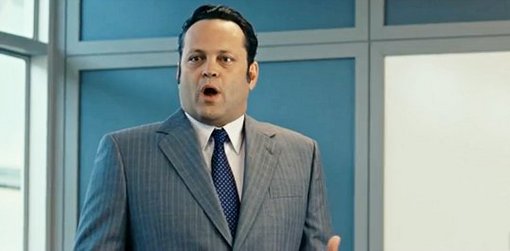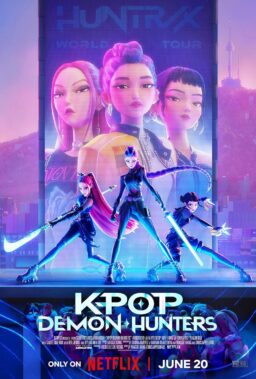On the day after the near-mystical cosmic alignment of Columbus Day and National Coming Out Day (did the Postal Service suspend delivery on the day Columbus came out in 1492?), and the very day that a US district judge issued a worldwide injunction ordering the Department of Defense to stop enforcement of its absurd, 17-year-old “Don’t Ask, Don’t Tell” policy for kicking gays out of the military (best of all, the case was brought by the Log Cabin Republicans!), I have found myself reading about a stupid gay joke that’s been removed from trailers for the upcoming Ron Howard comedy “The Dilemma,” starring Vince Vaughn and Kevin James.
I saw the trailer in front of “The Social Network,” October 1. Vaughn’s character is speaking to some automotive businessmen (is this a follow-up to Howard’s “Gung-Ho”?) and says: “Electric cars are gay. I mean, not homosexual, but my-parents-are-chaperoning-the-dance gay.”
CNN anchor Anderson Cooper reportedly went on “The Ellen DeGeneres Show” and said he was “shocked” that Universal “thought that it was OK to put that in a preview for the movie to get people to go and see it.” Universal responded by quickly pulling the scene from the trailer. No word on whether it will remain in the movie, which opens in January.
As Matt Singer observed at IFC.com, “Howard and his marketing team are as much guilty of bad timing as bad taste.” The rash of recent suicides by teenagers who’ve been harassed for being gay has made the use of “gay” as an insult especially galling, even among those who might otherwise think it’s “all in good fun” or something like that. And then there’s New York Republican gubernatorial candidate Carl Paladino announcing, “I don’t want [children] brainwashed into thinking that homosexuality is an equally valid and successful option. It isn’t.”
I find those things shocking and ugly and offensive. As for the lame movie “joke,” it struck me as gratuitously mean-spirited and dated and unfunny, but not shocking. I thought that “gay” as a kind of half-mock slur, with no direct reference to sexuality, ran its course in the 1990s. There was a time when it could be used with a sense of postmodern irony as a non sequitur or outrageously mixed metaphor, as when a friend of mine, stuck in gridlock, exclaimed: “Traffic is so gay!” The obvious inappropriateness undermined the notion that “gay” could be used as a legitimate insult. (Not unlike gay activists’ reclaiming of the word “queer” in earlier decades.)
But that was a long time ago, and all that’s left now — especially in the trailer for “The Dilemma” — is the residue of scorn. It’s unclear from the trailer what the joke is supposed to convey about Vaughn’s character, but his excruciating explanation just points up that he knows he needs to clarify what he means. And making that work as comedy would require handling it as it might be done on “The Daily Show” or “The Colbert Report” or a Judd Apatow movie or “The Office” (BBC or NBC) — which would be to either: 1) acknowledge the offensiveness while the teller remains clueless that he’s said anything untoward; or 2) let the teller realize he’s offended others in the room and uncomfortably try to squirm his way out of it; or 3) make the teller try to explain why he thinks he’s said something incredibly witty, when he clearly hasn’t. All we know from the trailer is that the meeting gets Vaughn and James the job.
These dilemmas intrigue me — like the ongoing arguments about what, exactly, the Banksy opening of “The Simpsons” was satirizing — because it’s a matter of figuring out what the funny part is supposed to have been. Kids have used “gay” jokingly, to mean cheesy or unmanly or uncool or even to pointedly signify “actually not at all homosexual” for a long. long time. So, when I hear people claiming (as they are) that the joke would be like saying, “that’s so jew” or “that’s so negro,” I think they’re missing the point by several nautical miles. Likewise those who equate it to saying “that’s so gay” about a Judy Garland album or a Madonna video. No, the “joke” (quotation marks to imply “such as it is”) may have demeaning, sissified overtones (“‘Dancing with the Stars’ is so gay”), but if the reference can be said to be at all humorous in intent, there should be either no overt correlation between the object of comparison and gay culture, or it should be ridiculously overstated.¹ To say, on the other hand, that Kathy Griffin’s audience is “so gay” is not a joke, it’s just a statement. (God, I love to analyze jokes.)
In his LA Times blog, Patrick Goldstein wrote:
Comedies are our favorite form of escapist entertainment. But is it really a comedian’s responsibility to worry about whom they offend? If so, they wouldn’t be comedians anymore — they’d be out of business. Lenny Bruce, Richard Pryor and George Carlin were comic gods because they managed to offend virtually everyone, whether they were rich and famous or an oppressed minority.
No one’s saying “The Dilemma’s” gay electric car joke is the stuff of legend. But it’s still comedy. And comedy is a lot like free speech — sometimes you have to hold your nose to support it. If you don’t stick up for the flimsiest kind of humor, then you can’t protect the most important kind either.
In the word of Leo McKern: “Hold.” Nobody has to “defend” a bad joke in a movie. This isn’t a First Amendment issue, unless you are a Dr. Laura-ist in your interpretation of the Bill of Rights. Nobody is questioning the filmmakers’ right to make the joke. (And, as the Supreme Court recently ruled, multinational megacorporations like NBC Universal Globochem now have all the free speech rights of individual US citizens, without the regulations or responsibilities!)
This is going to come down to a business decision: Is “The Dilemma” a more salable movie with or without the gay joke? Universal hasn’t said whether it will remove the gag from the movie itself, or if taking it out of the trailer is sufficient. I don’t particularly care, because I don’t want to see a Ron Howard comedy that — at least from the trailer I saw — makes some performers I like (Vaughn, Queen Latifah) deliver some cringe-worthy material. I believe people and corporations should be free to do what they’re going to do, say what they’re going to say, and reap the consequences.
But you know they’d market the hell out of the deleted joke in the unrated DVD extras — even though the joke has absolutely nothing to do with the movie’s MPAA rating.
– – – –
¹ This famous scene, between Seth Rogen and Paul Rudd over a game of Mortal Kombat, is hilarious for a lot of reasons, mostly having to do with the characters’ mocking their own sexual insecurities, and their competitive attempts to outdo each other’s jokes while playing the game:
Cal: You’re gay, now?
David: No, I’m not gay. I’m just celibate.
Cal: I think… I mean, that sounds gay. I just want you to know this is, like, the first conversation of, like, three conversations that leads to you being gay. Like, there’s this and then in a year it’s like, “Oh, you know, I’m kinda gonna want to get back out there, but I think I like guys,” and then there’s the big, “Oh, I’m… I’m… I’m a gay guy now.”
David: You’re gay for saying that.
Cal: I’m gay for saying that?
David: You know how I know you’re gay?
Cal: How? How do you know I’m gay?
David: Because you macramed yourself a pair of jean shorts.
Cal: You know how I know *you’re* gay? You just told me you’re not sleeping with women any more.
David: You know how I know you’re gay?
Cal: How? Cause you’re gay? And you can tell who other gay people are?
David: You know how I know you’re gay?
Cal: How?
David: You like Coldplay.











